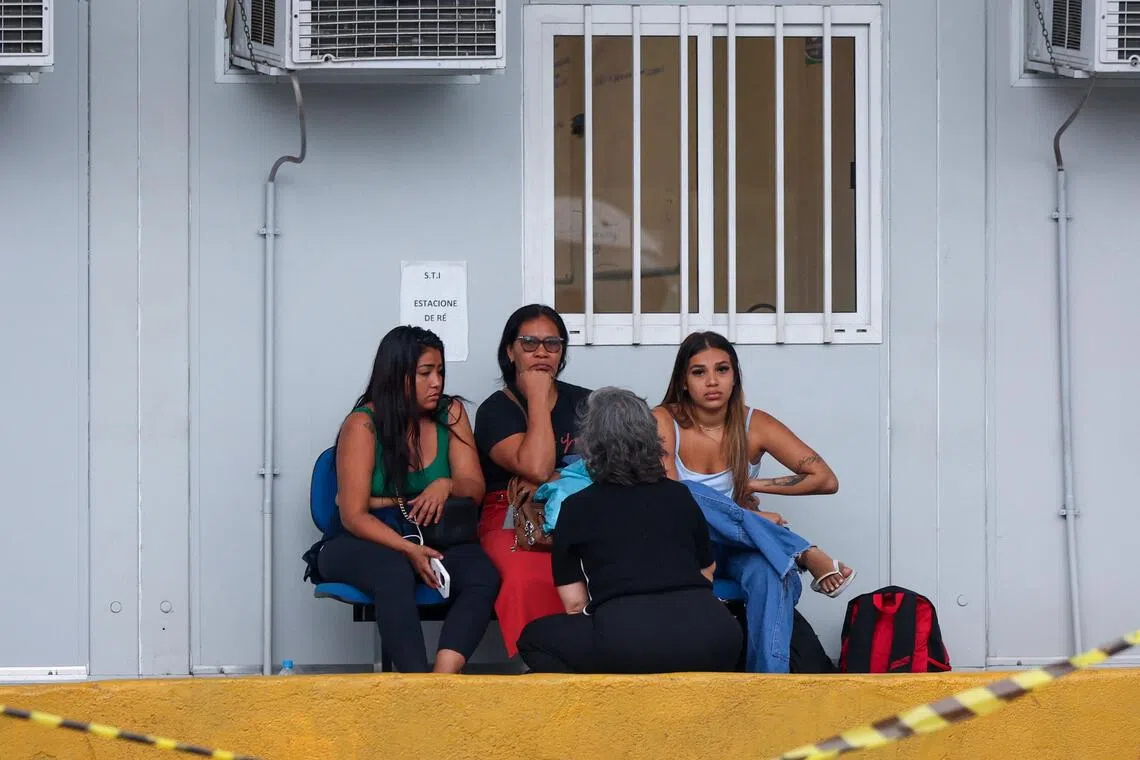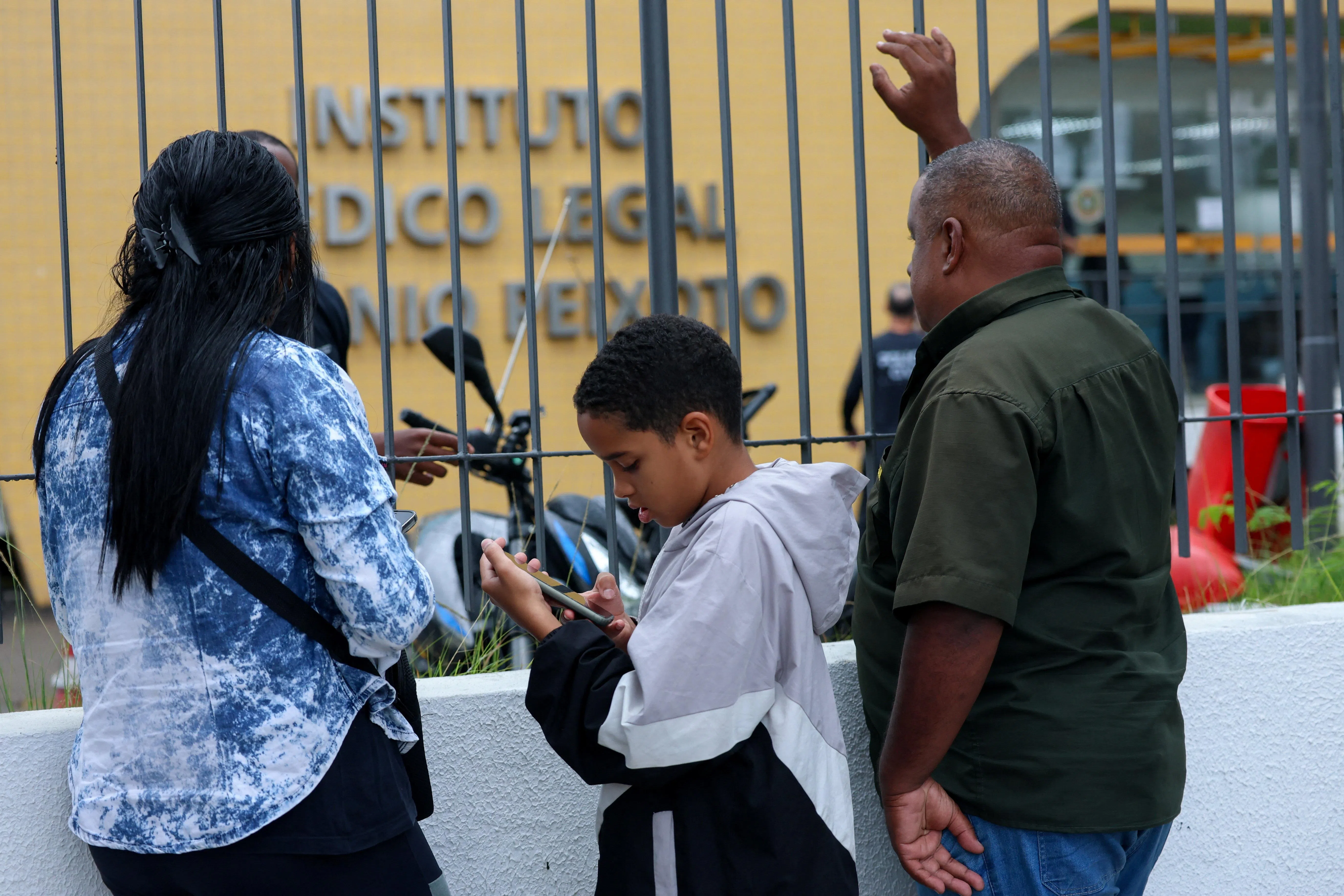Families cluster at Rio morgue looking for answers after deadly police raids in Brazil
Sign up now: Get ST's newsletters delivered to your inbox

People sitting outside a Rio de Janeiro morgue on Oct 30, following Oct 28 police raids in which at least 121 people died.
PHOTO: REUTERS
- Rio police raids against Comando Vermelho gang resulted in at least 121 deaths, including four police officers. Families are identifying the dead.
- Allegations of torture and human rights violations are being investigated after the operation, which drew criticism from the UN and local groups.
- President Lula vowed to combat organised crime and signed a bill protecting officials, while Rio's governor defends the operation.
AI generated
RIO DE JANEIRO, Brazil - Families lined up at a morgue on Oct 30 in Rio de Janeiro to identify relatives killed in Brazil’s deadliest ever police raids, and funerals began to take place for four police officers who died taking part in the operation.
Authorities have said at least 121 people died, including the officers, in the Oct 28 raids targeting the Comando Vermelho gang that controls the drug trade in several favelas - poor, densely populated neighbourhoods woven through the city’s hilly terrain.
Many of the corpses of those killed were retrieved by locals from the forested area near the Penha favela on the night of Oct 28.
On the morning of Oct 30, more than 100 bodies were still awaiting autopsies or identification at a local morgue.
Relatives stood outside, gazing through the fence and waiting for updates.
Some locals said they had found corpses with bound limbs and signs of torture, stirring protests and political backlash in a country where police killed over 6,000 people in 2024, according to government data.
Mr Victor Santos, Rio state security secretary, said on Oct 30 that “any misconduct that may have occurred, which I believe did not happen, will be investigated”.
Rio de Janeiro Governor Claudio Castro called the operation a success and said the “only real victims” were the slain officers. All the others killed were criminals, he said.
Mr Castro was scheduled to meet on Oct 30 with several right-leaning state governors, who travelled to Rio to show support.
Lula vows to combat organised crime
A group of left-wing lawmakers led by Congresswoman Taliria Petrone visited the Penha neighbourhood to meet and talk to locals.
“We will closely monitor the situation after yet another massacre in the favelas,” Ms Petrone said on social media, calling for “truth, justice and accountability in the face of another operation marked by human rights violations.”
United Nations officials have criticised the heavy casualties of the military-style operation and said there should be an investigation.
Mr Santos said there was no connection between the raids and the global events Rio will host next week tied to the UN’s COP30 climate negotiations, including the C40 summit of mayors addressing global warming and Prince William’s Earthshot Prize.
Brazil’s federal government was caught offguard by the operation by Rio state police, Justice Ricardo Lewandowski told journalists on Oct 29.
President Luiz Inacio Lula da Silva called for coordinated work that targets the gangs without putting police and innocent families at risk.
On Oct 30, he signed into law a Bill aimed at increasing protection for public officials involved in fighting organised crime.
“The Brazilian government does not tolerate criminal organisations and acts to combat them with ever greater vigour,” he wrote on social media. REUTERS

Relatives of the deceased waited outside the morgue to identify bodies on Oct 30.
PHOTO: REUTERS


